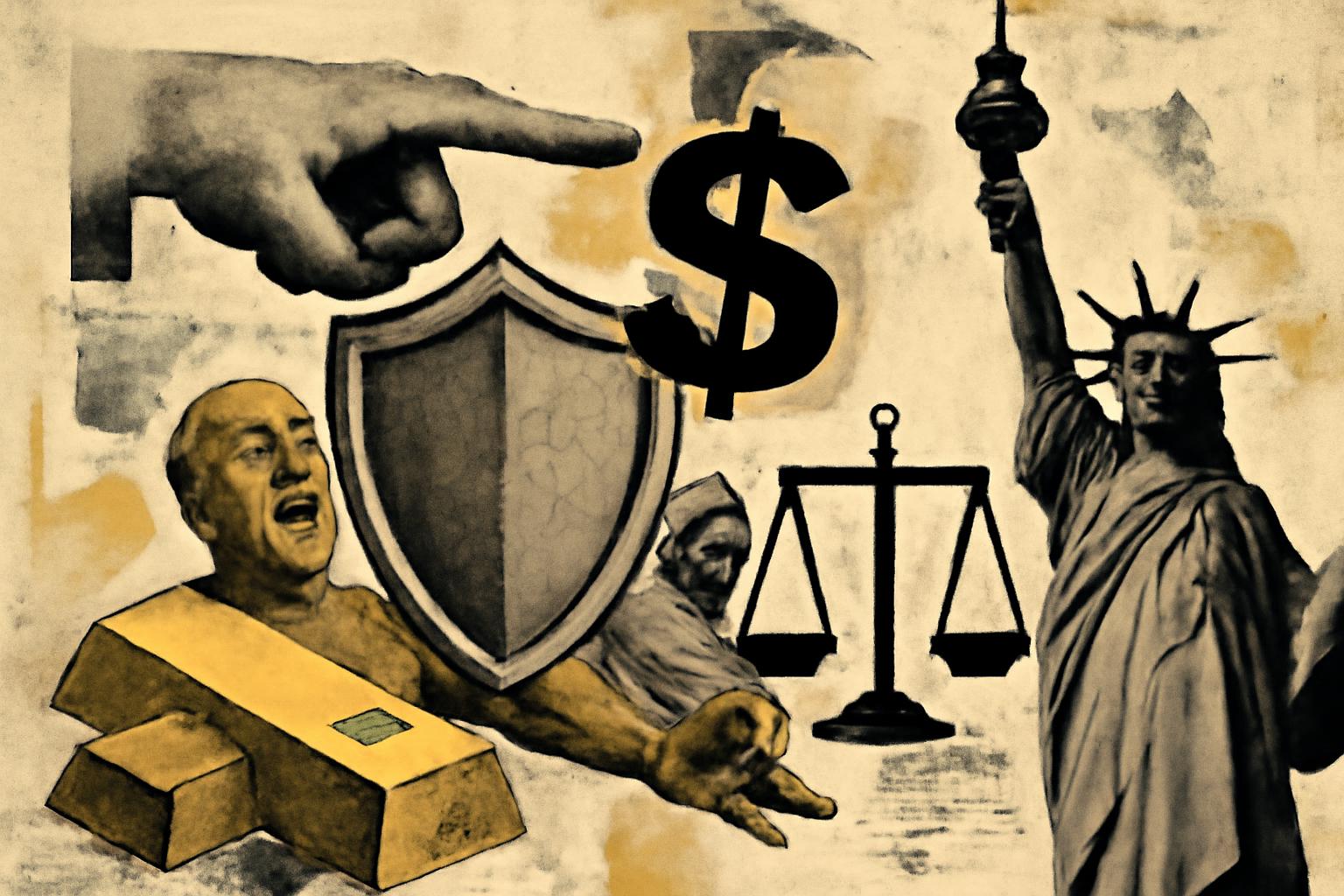The state tried to weaponize gold trading again, a reminder that whenever politicians glimpse a lever to “protect” domestic interests they reach for it even in the most absurd corners of the market. A potential tariff on one-kilogram gold bars would have been a coercive tax disguised as policy, a central plan dressed in legal constraint. The idea that a tariff code could somehow micro-manage global flows of a commodity priced by voluntary exchange is the sort of meddling Hayek warned us about—the illusion that centralized intervention can bend dispersed knowledge into a single, rational outcome.
From a Nozickian rights perspective, tariffs are a forced transfer racket. They confiscate wealth from importers and consumers to be redistributed by a state that claims the authority to decide what gets traded and at what price. They violate the rightful boundaries of bilateral exchange, reduce individuals to mere pawns in a political game, and treat property as a public fund rather than as the indispensable expression of each person’s rights. The moral logic of self-ownership and voluntary association dissolves in protectionist rhetoric.
And Rand would add: this is statist coercion masquerading as economic policy. Trade among rational actors is a moral exercise in pursuing one’s own life through voluntary exchanges. The state’s attempt to intervene—whether through tariffs, reclassification of tariff codes, or any other regulation—corrodes rational self-interest and enshrines force as a policy tool. If gold is to be valued and traded, let it be through property rights and contracts, not through political fiat that picks winners and losers by decree.
The market’s reaction—only a brief slide in price, a transient pause in shipments, and broad skepticism about the policy’s wisdom—exposes the fundamental truth: information in a complex, globalized market is decentralized, not housed in a policymaker’s desk. Tariffs inject uncertainty, distort price signals, and invite misallocation of capital, as traders anticipate retaliation, shifts in tax-like levies, or bureaucratic reversals. Hayek’s knowledge problem is not a sterile theory here; it is the practical consequence of trying to steer a traded good with the blunt instrument of government force.
What would a libertarian response look like? End tariffs, end the misnamed protections that pretend to “save” jobs by denying people the right to engage in peaceful, voluntary exchange. Protect individual property rights and enforce contracts, not political winners and losers. Let prices reflect true scarcity and demand, not the whims of a few policymakers who mistake coercion for stewardship. Gold, like any other marketable good, should flourish under the rule of law that constrains force, not under a regime that treats wealth as a public resource to be tinkered with.
In the end, the episode is another demonstration that the correct policy is not more state tinkering but less state intrusion. Roll back the scaffolding of tariffs, reject the premise that policy can engineer prosperity through coercive reallocation, and trust human ingenuity to coordinate exchanges that power, not punish, human flourishing.
